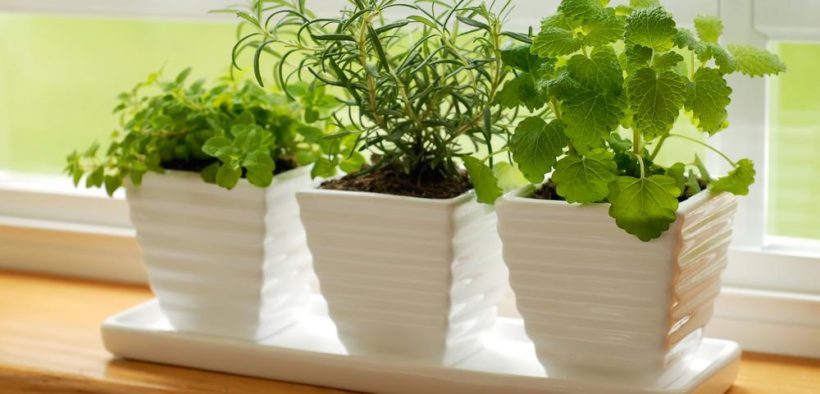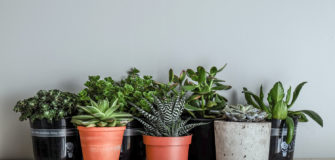10 Herb Gardening Mistakes to Avoid Making

Gardening is by far one of the most productive hobbies out there – you can kick back and unwind while giving back to nature and making the world a little greener. With herb gardening – whether you have a front yard and picket fence or a tiny balcony in the middle of a concrete jungle, it is so easy that almost anyone can do it. So, here are a few tips for all of you green-thumbed gardeners to get the most out of your herb garden:
1.Toil with Soil
Soil that is spent and tired has no nutrients left to offer your herbs. So make sure to keep replenishing your soil. You can do this easily with the wet waste lying around your house like coffee grounds and eggshells or even compost your kitchen scraps to get rich, good quality soil. Avoid using garden soils as they are heavier. Instead, invest in a good brand of potting soil or a ProMix. With the occasional spritz of water and water-soluble fertilizer, you’re good to go.
2.Starting with the Seed
Starting your herb garden with seeds, though rewarding, can be a bit challenging especially for beginners. Seeds have certain requirements in order to flourish. They need a proper environment to germinate and are just like children. They need to spend some amount of time growing indoors before they are ready to be taken outside. You can consider picking up a few starter plants, to begin with, or purchase just one or two of the healthiest available seedlings in your locality to get your herb garden going.
3.Keep it Simple
It is easy to get carried away and try too much, too fast. When starting your garden, take baby steps and begin with easier herbs, slowly building to more complex ones. Basil is one of the easiest herbs to start with. As a quick grower and resilient little plant, basil makes for the perfect pair of training wheels to experiment with until you’re ready for more.
4.Light it Up
The first thing we learn about plants is that they need light to grow. Try to let your herbs get as much light as they can. For indoor gardens, a sun porch or balcony is a great location for your herbs to really soak in the sunlight. If natural lighting isn’t a viable option, then your herbs can also thrive under fluorescents like a standard tube (T12 or T8), a fluorescent light bulb and so on.
5.Prune Prudently
Like cutting off the split ends in your hair, pruning your herb garden will keep your herbs stronger and healthier. Pruning in a V shape (take the shoot right after two smaller ones) is a good practice that will allow your herb to grow better and bigger. Making cuts directly above a double set of leaves and taking out the buds and flowers creates room for more leaf growth. As your herb regrows, you can prune every 3-4” on new growth to keep it well-kept and yield more. Another point to keep in mind is to always trim the growing leaves and never the bottom ones.
6.A Floral Warning
Though flowers are pretty to look at, they are not welcome to your herb garden party. With flowers in the mix, the herb will begin to focus its energy on procreating and will neglect its growth. Herbs like basil even turn bitter on account of the flowers. So it makes sense to nip it in the bud to keep your herbs focussed and healthy.
7.Knowledge is Power
It is always easier to try something new when you are well-equipped with the know-how. Learning about various other kinds of herbs will come in handy as you grow and expand your little garden. The same herb can exist in multiple variations and flavors. So make sure you know exactly what you’re picking out.
8.The Invasion of the Herb
Herbs grow like actual weeds and can easily overwhelm your garden plots. Herbs like mint and oregano grow quite intensely and can often, rather rudely, take over your garden with their growth. To keep this under control, you can consider container gardening – growing them in pots and burying them in the ground.
9.How much water is too much water?
Make sure you water your herbs well to keep them healthy. Most herbs require moderate and regular watering, more so in the hot summer months. For potted herbs, they will need more water than the herbs in the garden and the pots will need to have adequate drainage to prevent your herbs from flooding when it rains.
10.Expanding and Branching Out
As you hone your skills, consider opening up more sections in your garden for other kinds of herbs. Besides, basil, oregano, mint, thyme are some other easy to grow herbs that you can try out. Add new flavors to your garden and even spice up your everyday recipes with your new herbs. Feel free to experiment and personalize your garden to suit your needs.
























